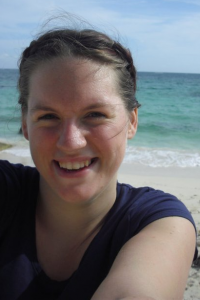 KT Cooper is a PhD student in the School of Earth Sciences at the University of Bristol. A carbonate geochemist by training, she is currently on a three-month secondment to Houston, Texas, USA working with Exxon Mobil.
KT Cooper is a PhD student in the School of Earth Sciences at the University of Bristol. A carbonate geochemist by training, she is currently on a three-month secondment to Houston, Texas, USA working with Exxon Mobil.
Not all research is successful and not all experiments have a positive outcome or even the outcome you first expected. When you are a young researcher, such as a PhD student, this is often very hard to come to terms with. It can feel like its a personal failure on your part and that can knock your confidence. But in the lines of Mel’s previous post on perspective, I hope I can give you some solace.
In carbonate sedimentology we have a problem (well we have many but this one is quite important). Dolomite, which is CaMg(CO3)2, is very prevalent in the rock record, however in the modern environments we can’t find it! Dolomite is thought to form when a fluid has a very high magnesium concentration when compared with calcium. As there are lots of natural fluids that satisfy this criteria so you might think that it would be simple to form dolomite. One researcher thought so and set up an experiment in the 1970’s to precipitate dolomite. After 32 years, he still had no dolomite!

Abstract for a failed 32 year experiment. Credit Springer Link, Published in Aquatic Geochemistry.
This paper (which in my opinion has the best abstract I have ever read) has been cited nearly 100 times and has been the catalyst for a new region of research in carbonates. This negative results, which took 32 years to come about, can only be viewed as a positive thing. So the next time you get a negative result, think to yourself “could this actually be a good thing?”
